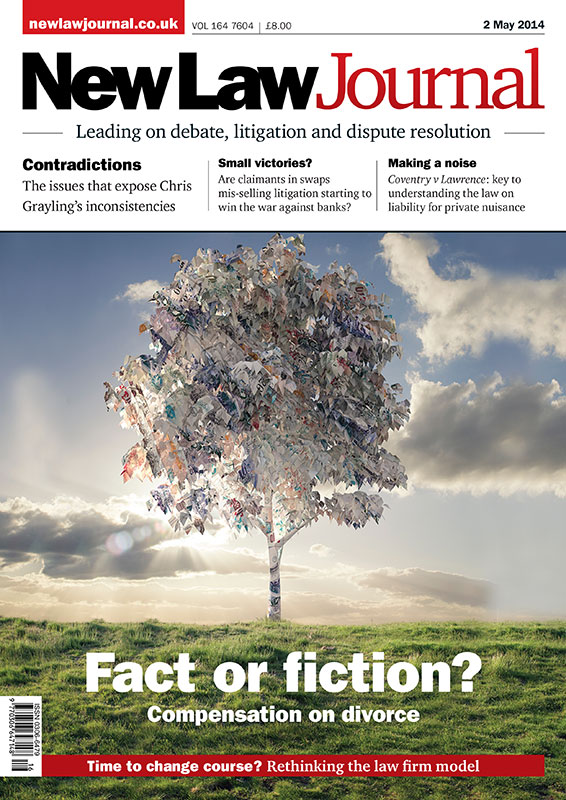
"Fault lines" identified in war against banks
Roger Smith looks at three issues that expose inconsistencies by the Lord Chancellor
Just how easy is it in practice to apply the principle of compensation, asks Ed Heaton
Sarah Crowther examines practical guidance for assessing PI damages under a foreign law
The decision in Coventry v Lawrence cannot be ignored, says Andrew Francis
The Court of Appeal has provided important authority on the scope of litigation privilege, says Leonie Parkin
Robert Postlethwaite looks at alternatives to traditional partnership & LLP ownership
Ashworth and others v Royal National Theatre [2014] EWHC 1176 (QB), [2014] All ER (D) 171 (Apr)
"Dementia law therefore continues to be in a state of flux but this book provides an authoritative overview of the current state of play"
"This edition should have a place in every practitioner’s library"
MOVERS & SHAKERS

NLJ Career Profile: Ken Fowlie, Stowe Family Law
Ken Fowlie, chairman of Stowe Family Law, reflects on more than 30 years in legal services after ‘falling into law’

Jackson Lees Group—Jannina Barker, Laura Beattie & Catherine McCrindle
Firm promotes senior associate and team leader as wills, trusts and probate team expands

Asserson—Michael Francos-Downs
Manchester real estate finance practice welcomes legal director







